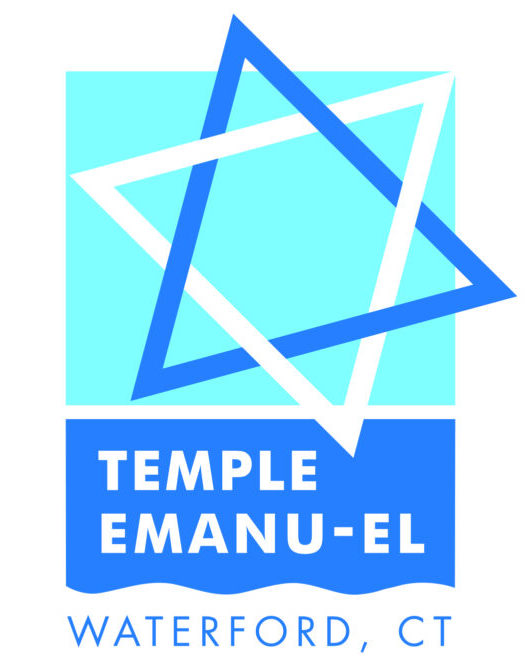| Friends,
Three topics this month: A special Bat Mizvah moment… Chapter 55 of the Book of Isaiah begins this way: Oh, every one who thirsts go to the water, and who has no silver, buy food and eat. Go and buy food without silver and at no cost, wine and milk. Why should you weigh out silver for what is not bread and your substance for what does not sate? Listen well to Me and eat goodly things, and you shall enjoy lavish fare. Bend your ear and come to Me, listen and be revived, and I will make with you a perpetual pact, the faithful kindness shown to David. (Alter, Robert. 2018. Hebrew Bible : A Translation with Commentary.) In this passage, the prophet voices both God’s invitation to return, and God’s deep and abiding commitment to those who do return. This prophet’s voice is raised in response to the Babylonian exile, the break in the chain of Davidic dynasty. Yet, Isaiah is less indicating a future return of the Davidic dynasty than a democratization of the “faithful kindness shown to David.” No matter how short or long our exile, an hour or decades, our return to God brings us fully back into the covenant. Everyone who wishes to be part of the covenant can sit at the table, drink and eat to satisfy their spiritual thirst and hunger. I find this passage to be particularly moving. All the more so when it was read in our Sanctuary on the morning of Rebecca Tsai’s Bat Mitzvah several weeks ago. On that morning, after Rebecca beautifully chanted her Torah portion from Parashat Noach, she chanted these verses from Isaiah. Joining Rebecca on the Bima were her grandfather, Reverend David Tsai, and her father, Mark Tsai. After Rebecca chanted these verses from Isaiah in Hebrew, Rev. Tsai, recited the words from our prophet in his native language, Taiwanese. Following his father, Mark Tsai recited them in our native language, English. I know this moment was very meaningful for the Golden-Tsai family. It was also meaningful to me because it was an example of the vibrant community we are building at Temple Emanu-El; a community where our treasured interfaith families fully and authentically engage in our Jewish traditions. We live the words in the next chapter of Isaiah, “For My house shall be called a house of prayer for all people.” (Is. 56:7) An amazing Shabbaton… In November, we welcomed soul-writers, Julie Silver and Sue Horowitz, to Temple Emanu-El for a Shabbaton. They led us in worship for Friday evening’s Kabbalat Shabbat, joined with Hazzan Sherry and me, leading Shabbat morning worship, and hosted a fabulous folk concert on Saturday evening. Rabbi Polly and I first considered bringing Sue and Julie to Temple Emanu-El about a year ago, when we attended Shabbat Shira at OSRUI in Wisconsin. Ideas only become reality with a lot of chesed (loving-kindness) from many. Please see Sam Winograd’s Religious Practices Happenings Bulletin article for recognition of all those involved. A reminder that the Shabbat morning service during the Shabbaton is just the beginning. The first Shabbat morning of each month through June, we will have a Shabbat morning service. Those of you who attended the Shabbaton, experienced the model for our Shabbat morning services going forward. Rabbi Polly will join with Sherry and me from time to time. Services will feature creative liturgy, contemporary music, Torah reading, creative Haftarah, followed by a communal Shabbat luncheon. The music we select will be from American and Israeli artists such as Nava Tehila, Or Zohar, and Sue and Julie. If you are a musician and want to join our spiritual practice, we’d love to have you. The goal of our creative liturgy and music is to tap deep into the meaning of our religious and spiritual traditions. A Pre-Shabbat Tzedakah Opportunity… It is a common Jewish tradition that before lighting the Sabbath candles, one would put tzedakah in a puske (tzedakah box). Each Kabbalat Shabbat, I publish a service pamphlet that usually contains songs not included in our Siddur, Mishkan T’filah, the Torah reading, and other helpful information. Going forward, the pamphlet will also include an announcement for a pre-Shabbat tzedakah opportunity accompanied by a QR code. This new tzedakah opportunity is meant to remind us of our obligation to give tzedakah and make it easy. By scanning the QR code before we light the Shabbat candles in the Sanctuary, you will be taken to a donation page. The donation will go to the Temple Mitzvah Fund. If you do not regularly attend Kabbalat Shabbat services, you can participate by going to our website donation page to contribute to the Mitzvah Fund – just put ‘pre-Shabbat Tzedakah’ in the note section. We will pool the donations and donate them. Each month, the Religious Practices and Social Action chairpersons and I will decide on a worthy local or Israeli organization to receive the collected funds. L’shalom, Rabbi Marc |

